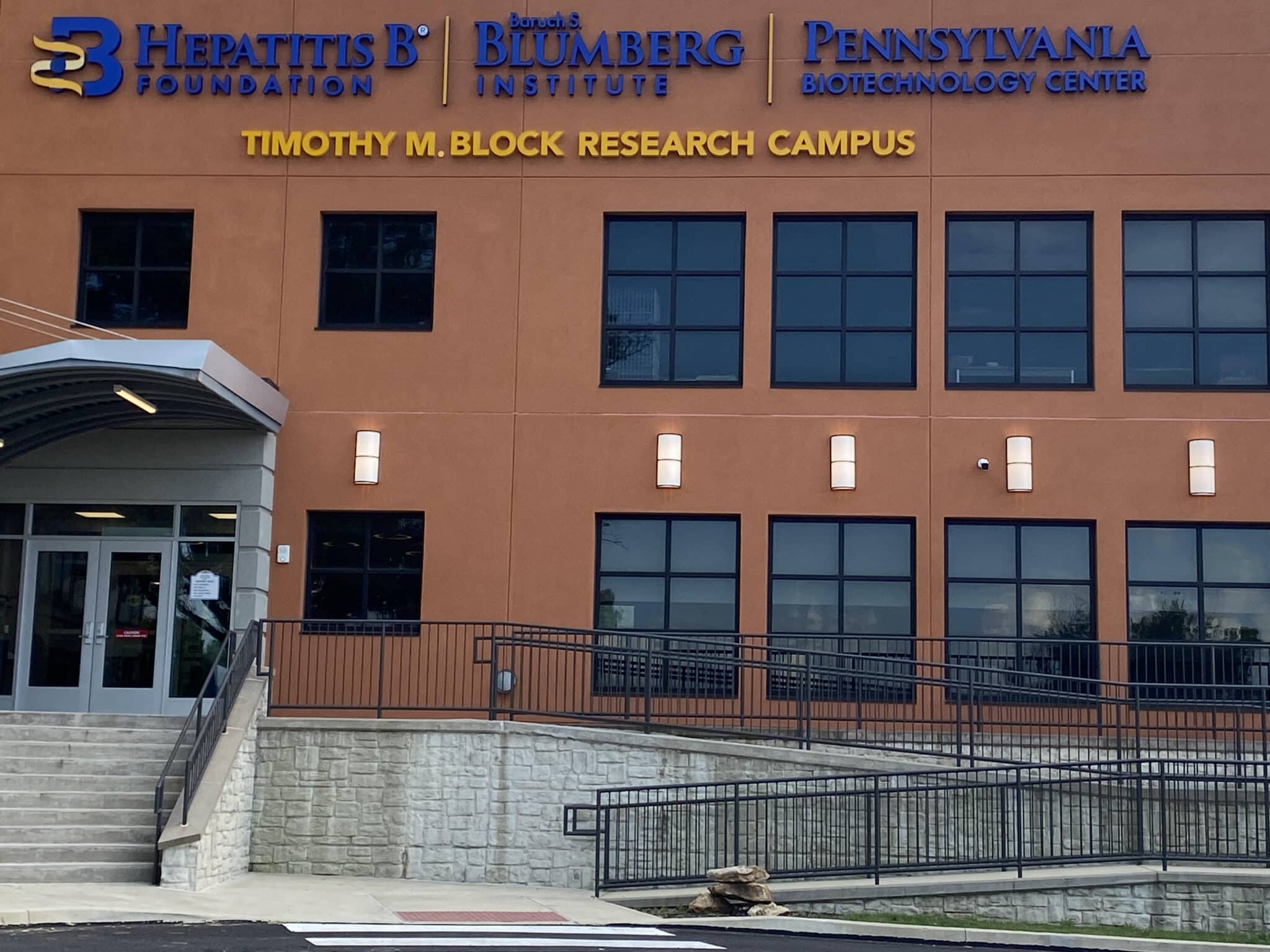Written by Freda Savana, Pennsylvania Capital-Star
Three Pennsylvania nonprofits share a uniquely focused mission on public health. Looming federal cuts to scientific research, they warn, could unravel decades of their work.
While the Trump administration’s proposed funding cuts in biomedical research are reverberating nationally, they are also causing grave concern in Bucks County, home to the Hepatitis B Foundation, the Baruch S. Blumberg Institute and the Pennsylvania Biotechnology Center (PABC), one of the country’s primary biotech incubators.
Leaders at the Doylestown-based organizations said sweeping spending cuts across multiple federal agencies threaten not only jobs and research, but advances in public health across the world.
“The drastic, arbitrary cut in National Institutes of Health (NIH) indirect cost funding would eliminate billions of dollars that support medical and public health research projects nationwide,” said Chari A. Cohen, president of the Hepatitis B Foundation.
“We are the only nonprofit solely dedicated to finding a cure for hepatitis B and improving the lives of those affected worldwide,” she said. Loss of the funding, “would result in thousands of jobs being cut and we stand to lose an entire generation of the world’s best and brightest scientists,” she added.
Recognizing the statewide importance of the biotechnology industry, Gov. Josh Shapiro visited in February, designating $30 million to support the life sciences industry across the state. Scientists from around the world lease lab space for their research at the Bucks site. More than 100 small- to midsize research and pharmaceutical companies are PABC members.
Louis P. Kassa III, chief executive officer of the trio of institutions, said work done at the center has contributed $7.3 billion to the state’s economy over the past five years.
State lawmakers from both parties have also provided smaller grants over the years. “Pennsylvania has prioritized infectious disease elimination,” Cohen said.
However, it’s federal money that’s the backbone of the southeastern Pennsylvania nonprofits, the executives said.
The numbers are stark. The Blumberg Institute currently holds 11 research grants and a multi-year contract with the NIH, which together provide salaries and benefits for 28 scientists and 10 support staff. If the funding is reduced or eliminated, the institute and the Hepatitis B Foundation could lose approximately $7.5 million in 2025 alone, said institute officials.
Additionally, the facilities are awaiting decisions on $10.2 million in pending NIH research grant proposals. That money supports research on the pathology of hepatitis B, clinical trials, liver cancer, and other related diseases. According to the Centers for Disease Control and Prevention, 1,797 people in the U.S. died from hepatitis B in 2022.
Cohen described the proposed funding changes as “deeply alarming.”
“In my life, I never thought I’d see this,” said Cohen.
Beyond the funding cuts, the Trump administration is proposing sweeping changes to the structure of the nation’s public health apparatus. A significant revision involves replacing parts of the Centers for Disease Control and Prevention with a new entity. The Administration for a Healthy America would fall under the oversight of Health and Human Services Secretary Robert F. Kennedy Jr. The new agency would absorb several existing federal programs, including those addressing substance abuse, HIV prevention and mental health, while also slashing budgets and workforce sizes, the CDC reported.
“The Budget reflects needed reforms to put health care spending on a sustainable fiscal path and proposes policies to Make America Healthy Again,” HHS press secretary Emily Hilliard wrote in a statement to CBS News earlier this month.
According to the agency’s data, the administration is proposing a $4.3 billion (or 53%) cut to the CDC’s budget and a 43% reduction in staffing. Trump officials argue the CDC has “exceeded its role” and should be refocused on “core functions.”
“These actions will impact our work here and abroad and profoundly impair our country’s ability to save lives and achieve the national goal of eliminating hepatitis B as a public health threat.” – Chari A. Cohen, President of the Hepatitis B Foundation
Global initiatives to address HIV/AIDS, tuberculosis and malaria could end under the new policies and millions of dollars in NIH grants, including those long expected by southeastern Pennsylvania’s three nonprofits, would be eliminated.
“The decision to terminate certain grants is part of a deliberate effort to ensure taxpayer dollars prioritize high-impact, urgent science,” Andrew G. Nixon, the director of communications for the Department of Health and Human Services, told ProPublica.
“Many discontinued projects were duplicative or misaligned with NIH’s core mission. NIH remains focused on supporting rigorous biomedical research that delivers real results — not radical ideology,” said Nixon.
Dr. Ju-Tao Guo, acting president and chief scientific officer of the Blumberg Institute, said loss of federal financial support would harm important parts of his team’s work, which supplement the Hepatitis B Foundation’s research.
“What’s happening at the NIH is being called an effort to eliminate waste, but reimbursement of research facilities and administrative costs have always been closely monitored by federal officials,” said Ju-Tao Guo. “These costs support critical activities like patient safety, hazardous waste disposal, and research security.”
Cohen shared those concerns, calling the staffing and program reductions “deeply alarming.”
Adding to the uncertainty is a change in how federal funds will be distributed. The administration’s proposed 2026 budget eliminates $43 billion previously approved by Congress for hepatitis B prevention and replaces it with a $300 million block grant to states. That funding, according to the spending plan, would also have to cover tuberculosis and sexually transmitted infection prevention.
As Congress prepares to debate funding for the proposed new health agency and overall public health spending, scientists, nonprofits and research advocates across the country are pushing back.
“These actions will impact our work here and abroad and profoundly impair our country’s ability to save lives and achieve the national goal of eliminating hepatitis B as a public health threat,” said Cohen.
“It feels like an attack on innovation, on science,” said Kassa.
Pennsylvania Capital-Star, where this article was originally published, is part of States Newsroom, a network of news bureaus supported by grants and a coalition of donors as a 501c(3) public charity. Follow Pennsylvania Capital-Star on Facebook and Twitter.
Freda Savana is a freelance reporter based in Doylestown.






